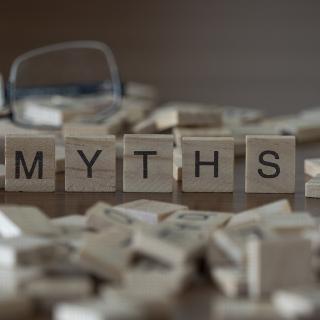MYTHS: COUNSELLING & COACHING
TACKLING MISCONCEPTIONS
3 MIN READ
What Type of Person Do you Associate with Counselling & Coaching?
Like with most things in life, we all come with our own preconceived notions of what something is. Some of us think counselling is exclusively for people who have been diagnosed with a mental health condition. Others believe that only those who have suffered from what they class as serious trauma should seek professional support. Anyone who doesn't fit our definition of suffering trauma or hardship, yet still benefits from counselling is sometimes labelled as weak or lacking in faith.

Such views are baseless, harmful and certainly not in line with Quranic teachings. Thankfully, there is a growing movement within Muslim communities to combat these misconceptions. There is a push to destigmatise mental health support and to revive Islamic teachings around mental health and wellbeing.
When it comes to coaching, a common view is that coaching is for the privileged; a non-essential used by those who have cash to spare. That it's for already successful, high-powered individuals who want to invest in themselves to achieve more. Sadly, many are having to defend and justify their need for professional support and are met with a lack of empathy and understanding.
In reality, both counselling and coaching overlap considerably and people from different backgrounds and with vastly different experiences benefit from them. What works for you will depend on a multitude of factors including your circumstances, your personal preferences, the specific expertise of your coach or counsellor and how that correlates with what you're trying to achieve.
Choosing Between Counselling & Coaching? 
While both coaching and counselling are aimed at supporting individuals, they do also have benefits and focuses that are unique to them.
Coaching is generally directed at helping you identify and achieve goals in your personal or professional life. A coach works with you to create actionable plans, develop personal accountability and to tackle obstacles. This empowering process helps you challenge and overcome self-limiting beliefs, while providing tools to reframe and process difficult experiences. If you're feeling burnt out or struggling to find balance, if your relationships are causing you distress, or if you've lost sight of what truly matters to you, coaching can be a valuable resource. Coaching is heavily present and future focused.
Counselling on the other hand is focused on helping you deal with emotional and psychological challenges you're experiencing. Whether the trauma is perceived as big or small, an isolated event or a build-up over time, past or present – counselling allows you to explore your feelings, beliefs, and behaviours. By understanding yourself better, you're able to regulate your emotions, to nurture self-acceptance and to find healing and personal growth along the way. Counselling is past and present focused.

What is important is to find a professional who understands and values your culture and faith, and who you feel comfortable with. Consider whether that professional specialises in a field that's important to you. Ask for recommendations. Check out their social media page and see whether any resonate with you. Find support that fits your lifestyle and that works for you.
Take action, practise gratitude and have tawakkul on the One who sees you.
This is patience.